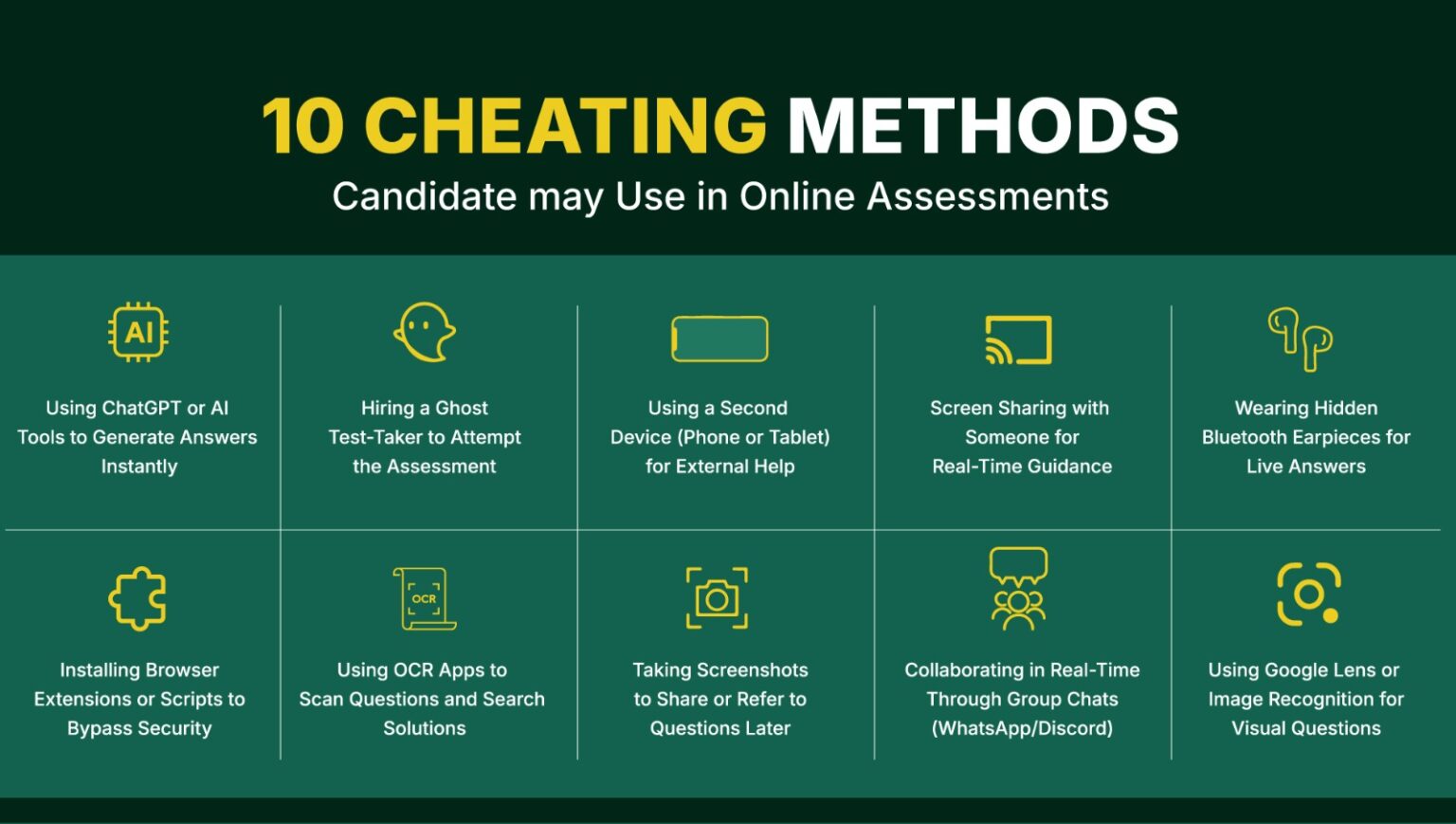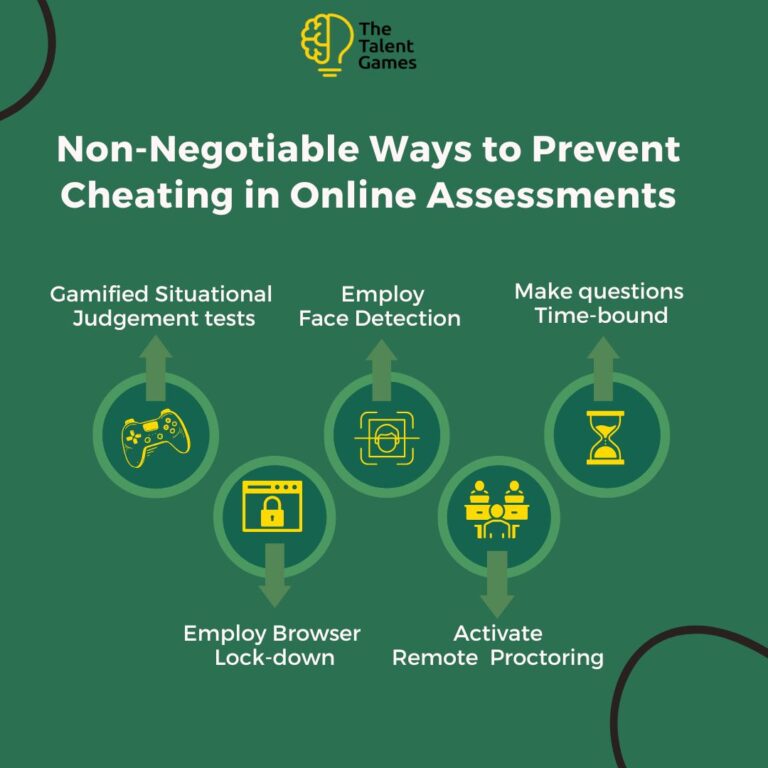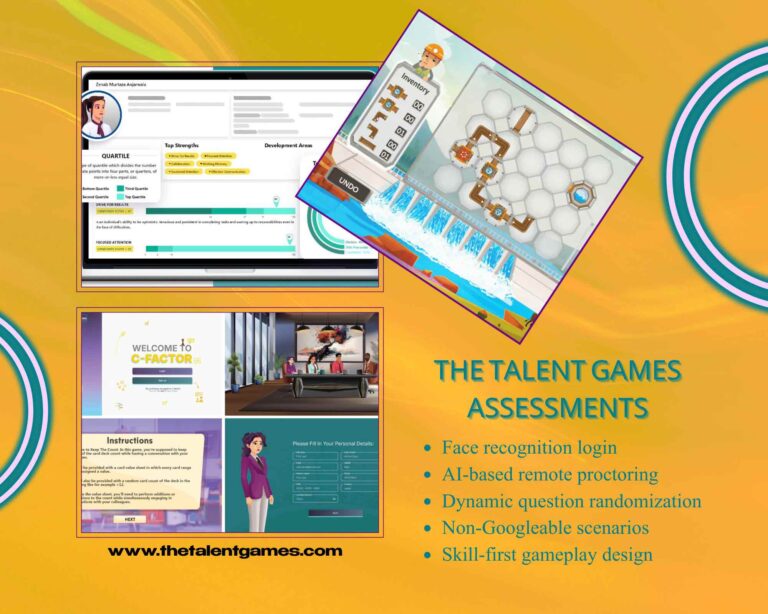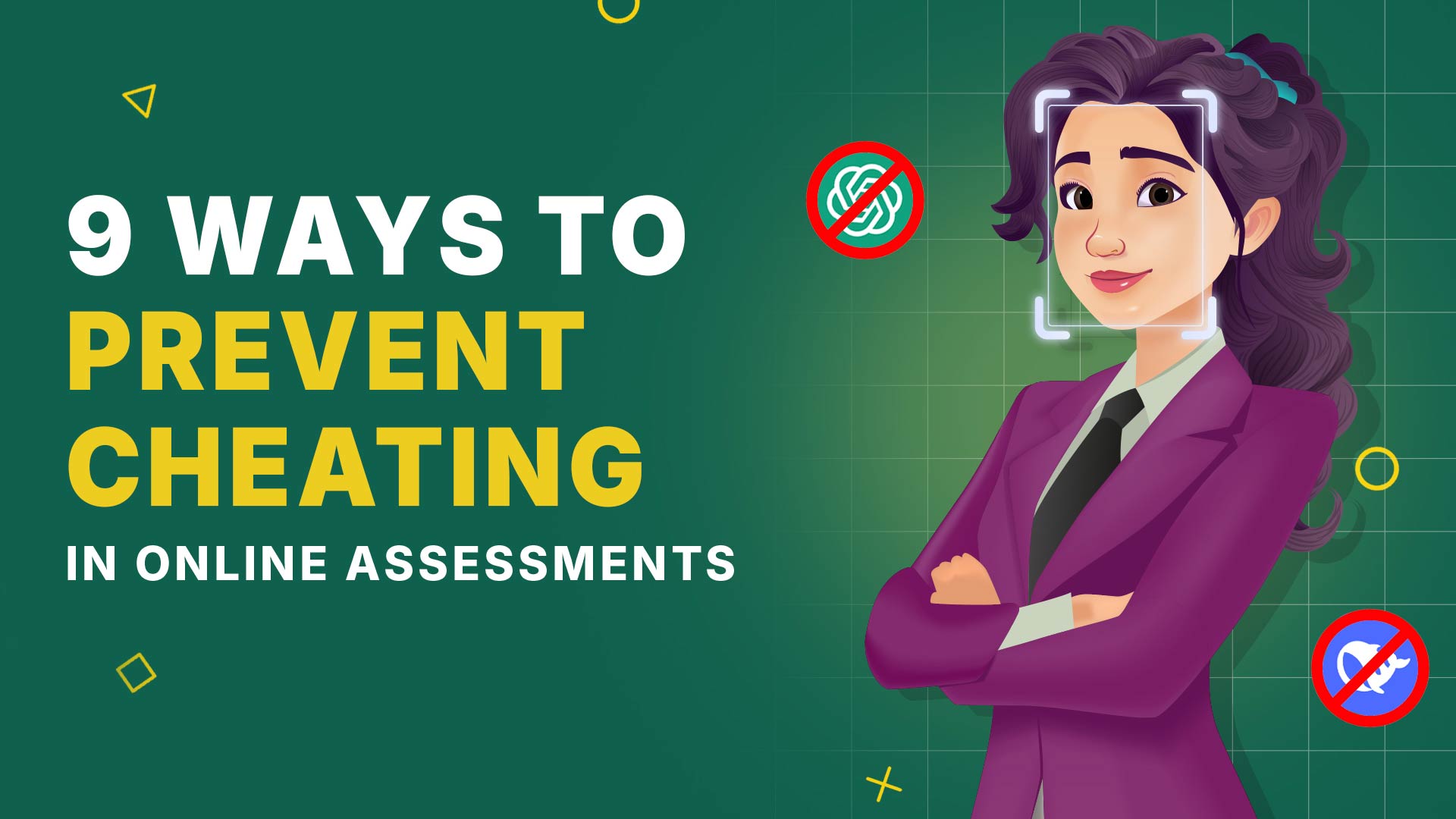In the post-AI era, candidates easily exploit traditional assessments. This blog reveals modern tactics of cheating in online assessments and shares proven strategies to secure your hiring process.
Can candidates cheat on remote, unproctored pre-employment assessments?
Unfortunately, the answer is a resounding yes, and with the rise of AI, it’s getting easier than ever.
What used to be basic copy-paste tricks has now evolved into full-fledged tactics powered by ChatGPT, voice-cloning, screen sharing, and even deepfake videos, giving candidates an unfair edge not just in assessments, but also in virtual interviews.
Back in 1973, criminologist Donald Cressey introduced the Fraud Triangle—a framework built around pressure, opportunity, and rationalization. When all three align in high-stakes hiring processes—and there’s no proctor in sight—the temptation to cheat becomes dangerously real.
In this blog, we’re uncovering the modern methods candidates use to cheat, how AI has turbocharged these tactics, and most importantly, how organizations can fight back with smarter, more secure hiring tools like gamified assessments.

How do Candidates Cheat in Online Assessments?
As candidates come up with ingenious ways to cheat during online assessments, it’s about time online tests became equipped with anti-cheating measures to thaw the sneakiest cheating attempts.
Let’s look at some common ways applicants cheat in online assessments:

1. Using ChatGPT or AI Tools to Generate Answers Instantly
With the rise of AI tools like ChatGPT, candidates can now copy and paste assessment questions into these platforms and receive instant, detailed answers. This method is especially popular because it’s fast, efficient, and often hard to detect without strict monitoring systems in place.
2. Hiring a Ghost Test-Taker to Attempt the Assessment
Some candidates hire someone else, often a more knowledgeable person or a professional test-taker, to complete the assessment for them. The ghost test-taker simply logs in using the candidate’s credentials, and the actual applicant doesn’t participate at all, making this a serious breach of integrity.
3. Using a Second Device (Phone or Tablet) for External Help
Even when a candidate’s laptop is being monitored, they may place a second device like a phone or tablet nearby to search for answers or get help from someone else. Since the second device isn’t visible on screen, it becomes a convenient loophole for cheating.
4. Screen Sharing with Someone for Real-Time Guidance
Candidates may use screen sharing tools like Zoom, Google Meet, or AnyDesk to show their test screen to someone else in real-time. That person can then guide them step-by-step or even control the screen to solve questions, giving them an unfair advantage.
5. Wearing Hidden Bluetooth Earpieces for Live Answers
Bluetooth earpieces are small and easy to hide, making them a popular choice for real-time cheating. A friend or hired assistant listens in and feeds answers to the candidate while the assessment is ongoing, often going undetected during unproctored or loosely monitored sessions.
6. Installing Browser Extensions or Scripts to Bypass Security
Tech-savvy candidates may install browser extensions or run hidden scripts that help bypass test security settings. These tools can auto-fill answers, suppress proctoring software, or even hide unauthorized activities from being flagged,m aking it difficult for basic systems to catch them.
7. Using OCR Apps to Scan Questions and Search Solutions
Optical Character Recognition (OCR) apps let candidates scan assessment questions directly from their screen using another device. These scanned texts are then used to quickly search for answers online, enabling fast and discreet cheating during tests.
8. Taking Screenshots to Share or Refer to Questions Later
Candidates may take screenshots of assessment questions, either to ask for help during the test or to use them for practice before future attempts. This tactic is often used in unmonitored environments and contributes to test content being leaked or misused.
9. Collaborating in Real-Time Through Group Chats
Some candidates create or join group chats on platforms like WhatsApp or Discord where they share questions during the assessment. Peers or experts in the group respond with solutions in real-time, turning the individual assessment into a crowd-sourced effort.
10. Using Google Lens or Image Recognition for Visual Questions
When faced with visual or diagram-based questions, candidates can use tools like Google Lens to scan and recognize the image. There are also latest version of AI tools that can read image and generate response. These tools then match it to relevant online content or solutions, providing quick and often accurate answers without much effort.
Top 9 Ways to Prevent Cheating in Online Assessments
As technology evolves, more and more efficient methods are devised to safeguard the integrity of online remotely administered tests.
Let’s look at the following 10 tech solutions that will reduce the risk of cheating in online assessments by almost 90%:

1. Use AI-Based Remote Proctoring Tools
To keep cheating in check, smart proctoring systems are your best ally. They quietly monitor screens, webcams, and mics to detect red flags like extra faces, whispering, or screen sharing.
2. Set Up Facial Recognition & Liveness Detection
There’s no room for impersonators when facial verification kicks in. Liveness checks confirm it’s the same person throughout the assessment, no deepfakes, no clever masking tricks.
3. Lock the Browser & Enforce Full-Screen Mode
Don’t give candidates a chance to explore outside the test screen. Browser lockdown stops them from switching tabs, pasting into ChatGPT, or using extensions to look up answers.
4. Make Your Assessments Time-Bound & Auto-Progressive
When every question is timed and auto-advances, candidates are forced to think on their feet. It’s one of the simplest ways to block collaboration or AI consultation mid-test.
5. Replace Traditional Tests with Gamified Assessments
Gamified formats offer a fast-paced, immersive environment where scripted or AI-fed answers fall flat. If you want to beat cheating creatively, game-based assessments are the smart move.

6. Turn On Webcam & Audio Monitoring
Cameras and microphones aren’t just for show. They help spot off-camera cues, hidden earpieces, or sudden noises that point to someone giving help in the background.
7. Randomize Q/A Choices for Each Candidate
Why give everyone the same test? Randomizing questions and shuffling answer orders stops candidates from sharing screenshots or memorizing a cheat sheet that actually works.
8. Run AI Checks for Plagiarism & Language Consistency
A well-written essay isn’t enough. If the tone suddenly shifts or matches ChatGPT’s style, AI-based analysis can pick it out and flag inconsistencies with a candidate’s previous responses.
9. Use One-Time Test Links & Restrict IPs
Sharing login credentials is an old trick. Shut it down by sending one-time access links and binding the session to a single IP address. No retakes, no remote backups.
10. Add a Live Human Proctor (When Needed)
When it’s high-stakes, nothing beats a real pair of eyes. A live proctor can spot body language, flag suspicious behavior, and stop the assessment right then and there if needed
The Talent Games’ Approach to Preventing Cheating
At The Talent Games, we recognize that the post-AI era has completely changed the game, literally. While most traditional assessment platforms struggle to catch up with AI-aided cheating, we’ve already moved ahead with solutions that make dishonesty nearly irrelevant.
Our gamified assessments are designed in a way that doesn’t just make cheating hard — they make it pointless. Psychometric games demand real cognitive skills like memory, focus, decision-making, and logical thinking. These can’t be copied, Googled, or answered with ChatGPT — the only way to succeed is to actually practice, like playing dozens of brain games beforehand.

When it comes to our gamified Situational Judgment Tests, the barrier to cheating in online assessments is even stronger. Candidates are placed in workplace scenarios where they have to respond based on their instincts, ethics, and judgment. There’s no script to follow, no clear right or wrong to search for — just who you are at your core.
What truly sets us apart from competitors is how we focus on behavioral data, not textbook answers. Our approach goes beyond surveillance; it reshapes the game itself. Instead of catching cheaters, we’ve made it so there’s nothing to cheat on.
